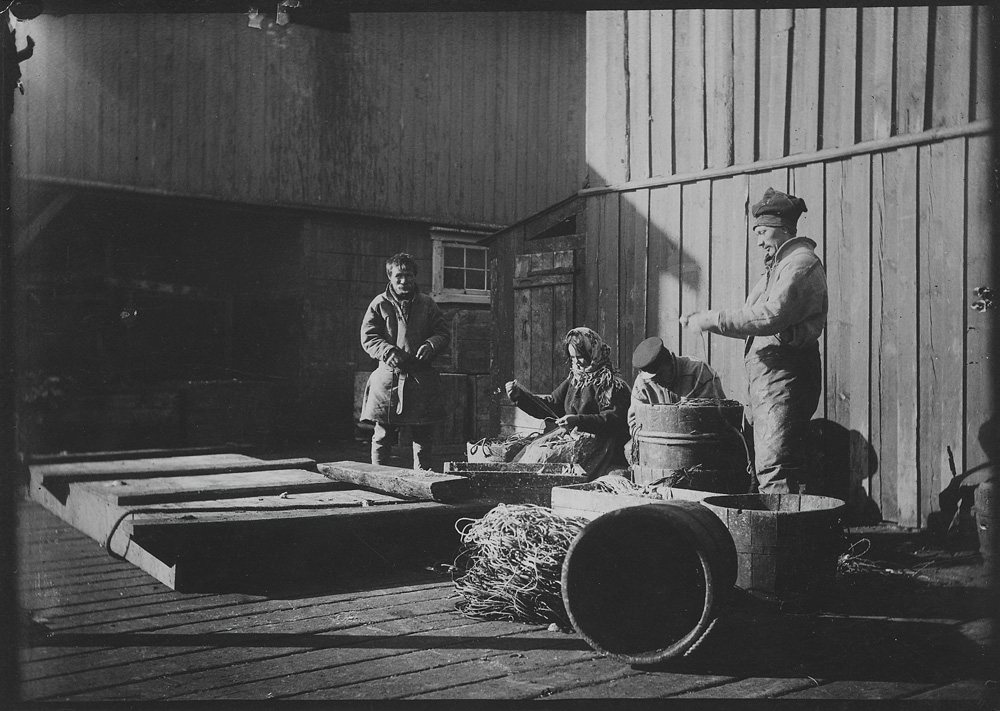Week 5 - 2016

Ellisif Wessel, From Kiberg in Nord-Varanger. Linene agnes, 1886-1920. Preus museum's collection.
Lihku beivviin! Happy anniversary!
February 6th is celebrated as Sámi National Day. It commemorates the first Sámi congress, held 6 February 1917 in Trondheim, Norway.
In the mid-1800s Norwegian authorities began a stringent policy of Norwegianization of the Sámi population, using federal powers to combat Sámi language, culture, and ways of life. Around the turn of the century a political awakening occurred, a reaction against governmental Norwegianization of the Sámi. The Sámi congress of 1917 resulted from this rising opposition. There the shared challenges facing Sámi peoples were discussed.
The photographer who took this picture, Ellisif Wessel, was born in secure, affluent circumstances in Kristiania (now Oslo). She spent her adult life as a doctor's wife in Kirkenes in remote northernmost Norway. But she was, of course, much more than the spouse of a doctor; she played a clear role in the Norwegian labor movement in the first decades of the 1900s as a writer, publisher of periodicals, and agitator. And her contribution to documenting Sámi culture in the South Varanger area of northern Norway remains invaluable.
Here she has photographed coastal Sámi on the wharf at the Kiberg fishing grounds, where they bait the lines. The coastal Sámi were vulnerable early on to colonization and assimilation because arriving Norwegians first began to settle along the coast and gradually took over the traditional fishing grounds and living sites of the coastal Sámi.
The federal government's Norwegianization of the Sámi is a shameful chapter in Norwegian history. We can learn from the story. Faced with new challenges we can unite to create a prouder history by caring about good ways to live together for all people and peoples in the country without resorting to assimilation.




